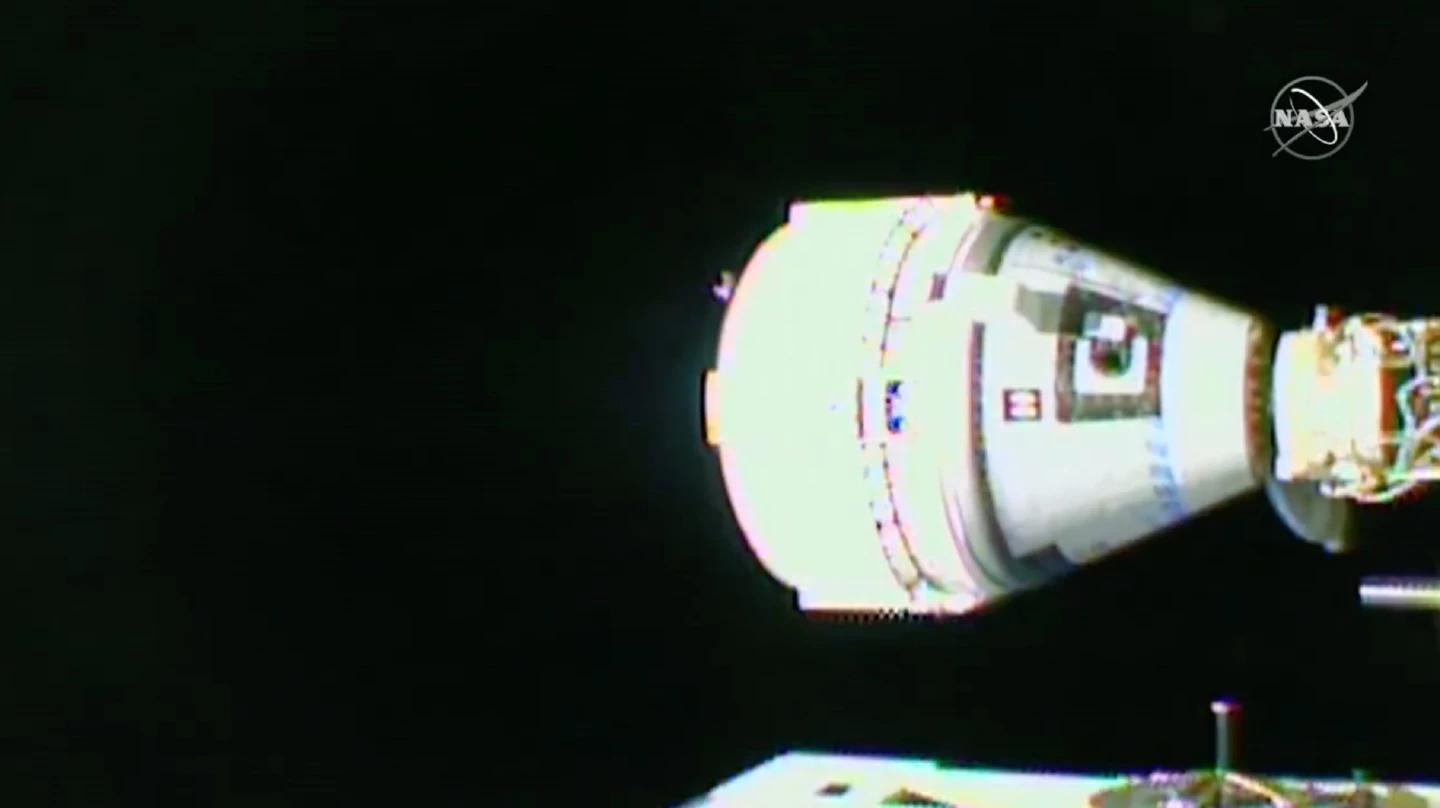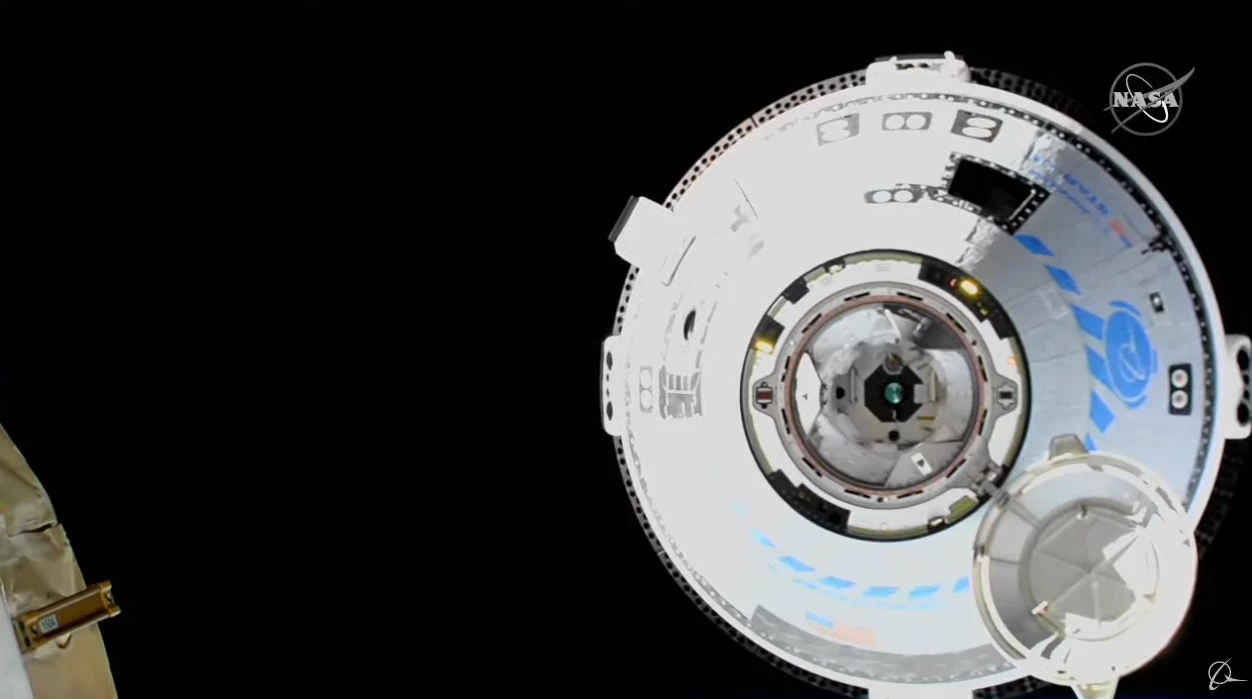Boeing is back in the business of human spaceflight after its uncrewed CST-100 Starliner passenger spacecraft successfully docked with the International Space Station (ISS) at 8:28 pm EDT, fulfilling the key objective of Orbital Flight Test-2 (OFT-2).
Today's docking was unusually suspenseful, even for a test flight to the space lab. Every new spacecraft has teething problems, but Starliner has encountered problems not only on the ground, but in orbit when a software glitch sent OFT-1 into the wrong orbit, forcing an emergency landing.
Early in the latest mission, which launched yesterday from Cape Canaveral Space Force Station in Florida, it seemed as if history was repeating itself as Starliner suffered a malfunction in two of its attitude control thrusters and the sublimator in its cooling system failed. Mission Control in Houston, Texas, instituted a workaround, but the incident highlighted the air of caution that hung over the approach to the station.

Spacecraft arriving at the ISS go through a series of safety pauses and maneuvers, but OFT-2 was watched unusually closely as Mission Control and the crew aboard the station monitored the craft's autonomous control and tested its ability to maneuver. This resulted in a number of pauses to assess the situation before final clearance to dock was given.
After achieving a soft docking with one of the station's modules, Starliner shut down its thruster systems before initiating a hard docking. The craft then switched on its onboard solar array to recharge its batteries.
"Starliner has proven safe, autonomous rendezvous and docking capability," said Jim Chilton, senior vice president, Boeing Space and Launch. "We’re honored to join the fleet of commercial spacecraft capable of conducting transportation services to the space station for NASA."
The video below is a replay of the docking.
Source: Boeing






